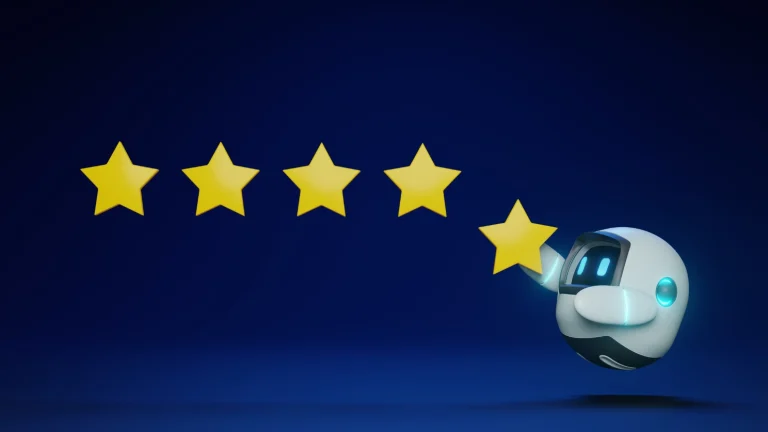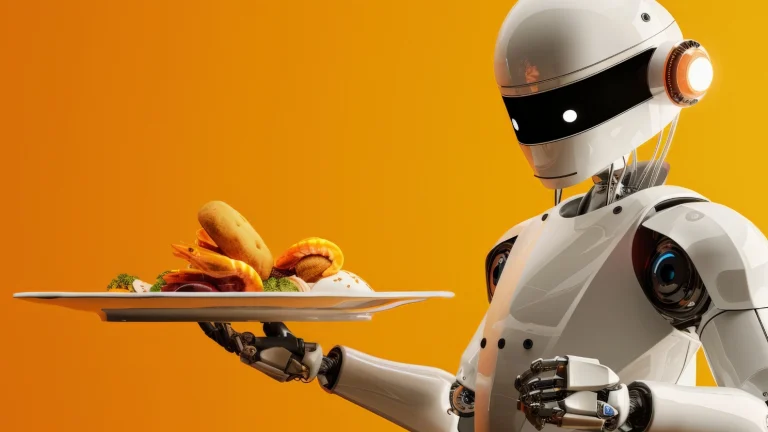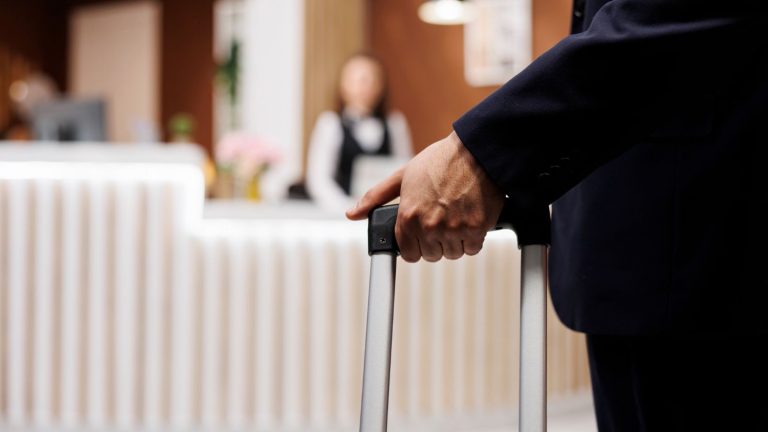Contents:
Maintaining a consistent quality of service when you own a single restaurant or hotel is already challenging. Add another venue, or two, or five, and you find yourself in a situation where making sure that everything is well-organized becomes an impossible task.
Manual inspections are too time-consuming and subjective. They leave room for too many possible errors, such as gaps in checklists or cursory spot visits. And thus, guest experience suffers, and brand compliance is just never there.
According to Deloitte, streamlining operations is among the top three priorities for hospitality leaders, with 69% hospitality businesses stating it’s what they’re paying most attention to. Yet most of them still don’t rely on AI to automate what’s automatable.
In this article, you’ll learn that AI quality and inspection agents are the future of hospitality operations. As a Solution Architect with over 20 years of experience, I will give actionable tips and insights on the topic. For example, you’ll see how to implement the brand standard room inspection AI agent to make it most beneficial.
Let’s dive in!
What Is an AI Quality & Inspection Agent for Hotels and Restaurants?
An AI Quality & Inspection Agent is a vision-powered computer module that automatically checks and evaluates compliance with brand standards in live mode. It can scan room cleanliness and inspect kitchen operations using visual inputs (images and videos) alongside structured checklists.
Restaurant cook evaluation AI agent, brand-standard hotel room inspection, AI daily reporting bot – these are all ultimately synonyms to an AI model that uses the same logic, just for different tasks.
5 Core Functions
There are five core functions or features that your AI Quality & Inspection Agent must possess to ensure its efficiency.
- Image-based detection of adherence to brand standards (room layout, amenities, cleanliness markers).
- Automated anomaly alerts (e.g., badly cooked dish, dirty carpet in a room, missing amenity kit).
- Integration and sync with maintenance and housekeeping workflows.
- Dashboard to track quality score and trends.
- Multisite performance benchmarking for multiple locations, franchises, or brand groups.
The combination of the above will ensure your hotel or restaurant evaluation AI agent does its job well, while also integrating nicely with the processes that are already set up.
3 Use Cases for AI Agents that Inspect Quality of Hotels & Restaurants
Let’s have a look at the most common and beneficial use cases where all the core functions are included.
- Brand-Standard Room Inspection AI Agent. This agent uses computer vision to compare guest rooms with approved visual templates. It detects deviations in room setup, cleanliness markers, or amenity placement in real time. As a result, the agent generates a standardized score across all your properties.
- Restaurant Cook Evaluation AI Agent. This tool monitors dish presentation, kitchen hygiene, and workflow compliance. You’ll see into food-prep standards, plating consistency, and safety safeguards. This helps uphold brand standards in the kitchen.
- Restaurant Evaluation AI Agent. Similar to room inspection, this agent analyzes the dining area, looking at the guest-facing presentation. For example, it can detect staff uniforms, table layout, and décor consistency. You’ll gain an objective view of whether the experience matches your brand identity.
In general, you can set up an AI agent to detect the most important aspects of your brand identity and ensure it’s kept at a high level without ever needing to physically visit every premise.
7 Benefits of AI Quality & Inspection Agents for Hotels and Restaurants
Consistent enforcement of brand standards across all properties is one of the most valuable outcomes of implementing AI-driven quality inspection. When every room, restaurant, and facility is evaluated by the same intelligent system, you gain clarity and confidence in your brand’s presentation.
- Consistent enforcement of brand standards across all locations. AI agents apply the same visual and operational criteria to every inspection, removing human bias. This ensures that each room setup or dining area meets your approved brand template.
- Faster feedback loops with automated detection and reporting. Instead of waiting for end-of-day checklists or manager reviews, AI systems deliver instant alerts when issues are detected. Staff can act on them immediately, receiving automated messages, which reduces downtime and guest complaints.
- Reduced labor costs for manual audits and supervision. Automated inspections will be running continuously, so that your management team will be able to focus on higher-value tasks. The system replaces hours of manual walkthroughs with real-time monitoring and reporting.
- Objective, data-driven quality scoring vs subjective evaluations. AI inspection tools quantify quality metrics, such as room setup accuracy, cleanliness, and staff compliance. This makes it easier to get measurable scores instead of subjective impressions. Such transparency helps standardize performance evaluation across properties.
- Early detection of maintenance or hygiene issues. By recognizing cleanliness markers, broken fixtures, or irregularities in workflow patterns, the system predicts potential problems. You can then use preventive action to reduce repair costs and ensure safety compliance.
- Stronger compliance documentation for franchisors and regulators. Every inspection is logged with timestamped evidence, simplifying compliance reports. You can easily demonstrate adherence to brand, safety, and hygiene requirements during audits.
- Improved guest satisfaction through cleaner, more consistent environments. When every touchpoint meets your brand’s standards, guests notice. A consistent environment builds trust, drives repeat bookings, and strengthens your reputation.
How Hotel and Restaurant AI Quality & Inspection Agents Work for Daily Reporting
AI Quality & Inspection Agents usually combine computer vision, automation, and data analytics. This brings consistency and speed to property inspections. Each layer of the system plays a role in capturing, analyzing, and improving quality performance across your locations.
- Data Capture Layer. The process begins with image or video input from mobile apps, mounted cameras, or smart devices placed in rooms and kitchens. These visuals serve as the raw data that the AI system uses to assess real conditions on site.
- Vision AI Layer. Trained on your brand’s approved visual templates, the model detects deviations from expected layouts, cleanliness markers, or presentation details. For example, it can identify misplaced amenities, stains, or dish presentation errors within seconds.
- Scoring & Analytics Layer. Detected elements are translated into structured data and converted into quantitative scores. These can be set per room, per dish, or per property. The clear metrics help you compare quality levels across sites. In addition, you get to track performance trends over time.
- Workflow Integration. Results seamlessly sync with your existing PMS, housekeeping, or maintenance systems such as ALICE or Optii. This automation allows tasks to be assigned instantly, which in turn ensures corrective actions are logged for accountability.
- Feedback & Continuous Learning. Human reviewers can validate what AI found, feeding the results back into the model. In time, provided the feedback is continuous and consistent, the system learns from it and logs inspection history, becoming more accurate and better aligned with your brand standards.
Why Build Custom vs. Buy Off-the-Shelf Hotel Daily Report AI Agent
Now that you see the benefits of using an AI agent for your hospitality or restaurant business, you might be wondering how you can build one. There are two ways you can go: an off-the-shelf or a custom-built solution. Let’s have a look at both.
| # | Criteria | Off-the-Shelf AI (e.g., Optii Vision, Levee AI) | Custom AI Agent by MobiDev |
|---|---|---|---|
| 1 | Model Training | Generic, limited to default templates you can’t change | Training based on your brand standards, custom room types, or menu visuals |
| 2 | Integration | Basic APIs don’t always sync with PMS/CMMS | Fully integrated with your PMS, housekeeping, or maintenance system |
| 3 | Flexibility | Workflows and KPIs that are not flexible | Customizable dashboards and dynamic scoring logic |
| 4 | Scalability | Works for a single property only | Scales across the whole brand portfolio with centralized learning |
| 5 | Ownership | Vendor owns all data and models | You retain all the IP and training data, having control over future improvements |
A custom AI quality & inspection agent is your definite choice if you want to keep your brand DNA intact, support specific internal KPIs, and ensure the beneficial evolution of operations. All these can help you turn quality control into a strategic differentiator instead of just another compliance chore.
Why Choose MobiDev for Custom Development of AI Quality & Inspection Agents
Developing and implementing such a complex thing as an AI quality assurance agent can get very difficult very early in the process. It’s best to trust professionals with a proven track record to help you build the agent perfectly from the start.
MobiDev has got your back here, as you’ll be able to control the whole process without diving too deep into technical details. Among the most clear benefits are:
- Your peace of mind with a provider that has a proven track record in AI Agent Development for hospitality, retail, and field operations.
- Expertise in vision AI, workflow automation, and multi-property integrations to ensure the AI agent you build with MobiDev possesses all the key features needed.
- End-to-end delivery, where model training, UX design, and PMS integration are all included, along with long-term support.
- Transparent R&D support, as you retain ownership of all the IP and data. MobiDev only delivers the engineering.
So if you want to create a custom brand-standard hotel room inspection AI agent or a restaurant kitchen and room evaluation one, MobiDev is the best choice. You’ll get the support of a trusted engineering team that will build it for your brand with all the needs and requirements you have.
FAQ
A quality inspection app relies on manual input beforehand, while AI agents automatically analyze and score the performance using computer vision.




